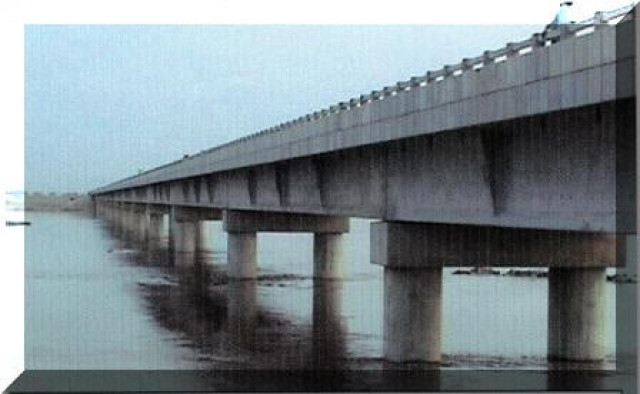Karachi’s natural waterways should be protected, according to experts.

At a meeting with the theme “Obstructions and Risks to Karachi’s Natural Waterways,” organized by the Karachi Press Club, writers, urban planners, environmental specialists, and representatives of civil society emphasized the pressing need to protect the city’s natural drainage channels and ecological balance.
The event, which was attended by legal expert Abeerah Ashfaq, Karachi Press Club Secretary Sohail Afzal Khan, Kazim Hussain Mahesar, Indigenous Rights Alliance Hafeez Baloch, urban planner Muhammad Tohid, Professor Dr. Abubakar Baloch, environmentalist Darya Khan, historian and author Azeem Dehqan, and numerous others, emphasized the critical role that the Malir and Lyari rivers, as well as their associated streams and tributaries, play in preserving the ecological balance of Karachi and supplying natural flood drainage. Participants emphasized that the long-term viability and safety of the city depended on these streams and their ecosystems surviving.
Official recognition of the Malir and Lyari rivers as “living waterways” and the removal of any impediments, encroachments, and unlawful constructions along their paths were among the demands made by speakers. They also underlined that in order to maintain the ecological resilience of the city, all future construction on these natural rivers should be strictly prohibited.
During the session, a resolution was unanimously approved. It demanded the establishment of permanent green zones and rural territories in Karachi’s peri-urban areas, especially Malir, Gadap, Moedan, and Kathore. The resolution contended that doing so would preserve agricultural areas’ essential significance and prevent farmlands and historic villages from being engulfed by quickly growing housing projects. The resolution also called for the current prohibition on the removal of sand and gravel from the Malir River and its tributaries to be strictly enforced, stating that such actions jeopardize the rivers’ structural integrity and interfere with natural flows.
In the city’s master plan, the participants encouraged the government to permanently designate the agricultural area in Malir district as a green zone. In order to support local food production and preserve ecological balance, they also demanded that leased lands be returned to local farmers or that they be given ownership rights, all the while offering farmers subsidies. Participants called for an urgent end to deforestation, encroachments, and degradation of coastal resources, voicing concerns over the loss of mangrove trees and other coastal ecological assets. Instead, they recommended that successful initiatives be started to increase and restore mangrove cover.
Speakers emphasized the urgent need for Karachi to embrace contemporary and sustainable international planning principles in light of climate change, unplanned urban development, and fast population growth. This covers the creation of a strong disaster management plan, as well as the implementation of safe housing and construction laws. Additionally, they demanded that the disposal of hazardous industrial and chemical waste into the Malir River or any other natural waterway be completely prohibited. They stated that in order to protect the city’s water supplies, industries should be forced to employ contemporary waste management techniques to dispose of their waste and that unregulated groundwater extraction for commercial and industrial purposes should be outlawed.
The resolution also demanded swift and efficient legislation to safeguard Karachi’s agricultural areas, waterways, and natural resources. Additionally, participants called for an unbiased environmental study to be conducted before any more Bhutto Highway development is undertaken. They suggested that in order to restore ecological balance, any property near the Malir River that was exposed by the highway’s extension should be used for forest development.